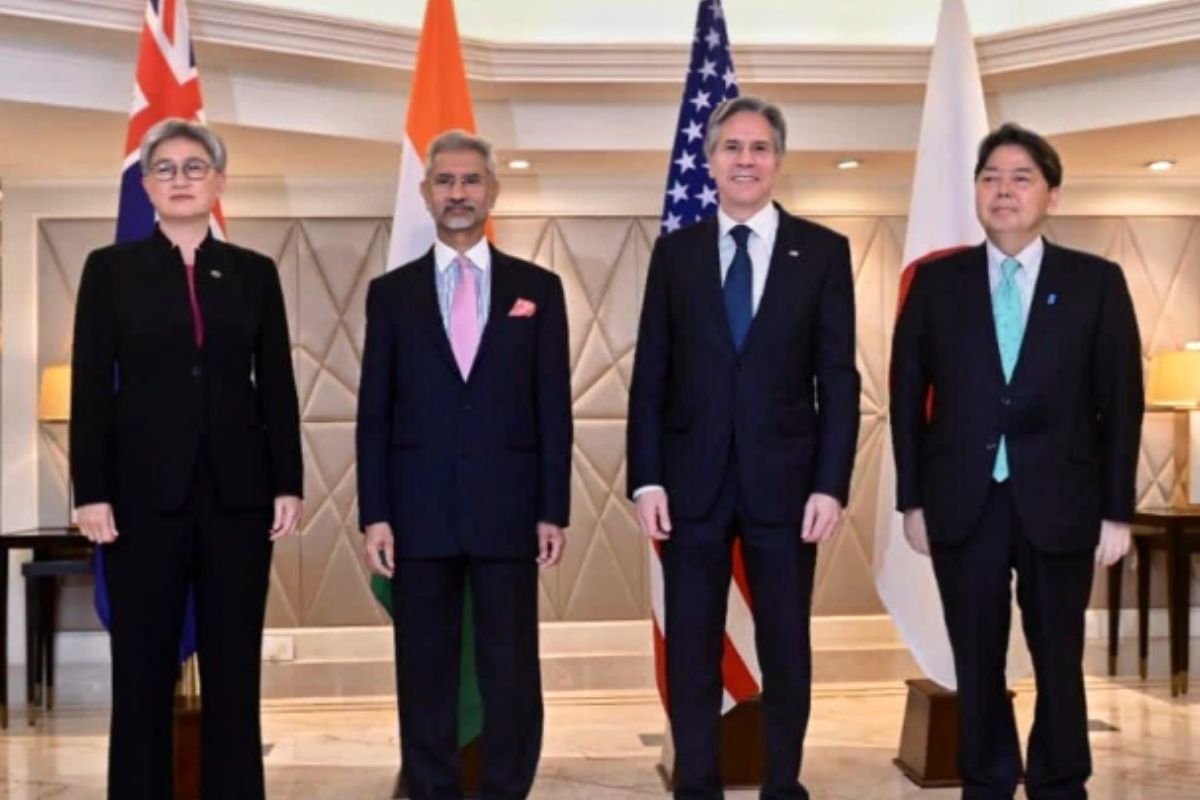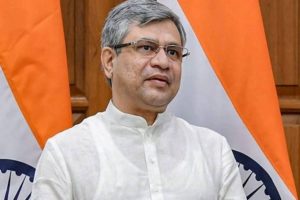In a clear message to China over its growing assertiveness on maritime issues, the four Quad nations on Friday reiterated the importance of adherence to international laws, as reflected in the UN Convention on the Law of the Sea (UNCLOS), to meet challenges to the maritime rules-based order, including in the South and East China Seas.
”We strongly oppose any unilateral actions that seek to change the status quo or increase tensions in the area. We express serious concern at the militarisation of disputed features, the dangerous use of coast guard vessels and maritime militia, and efforts to disrupt other countries’ offshore resource exploitation activities,” the foreign ministers of the Quad countries said in a joint statement at the end of their meeting here.
Advertisement
The meeting, hosted by External Affairs Minister S Jaishankar, was attended by US Secretary of State Antony Blinken, Australian Foreign Minister Penny Wong and Japanese Foreign Minister Yoshimasa Hayashi.
The four countries said they were determined to deepen engagement with regional partners, including through information-sharing, capacity-building and technical assistance, to strengthen maritime domain awareness; counter illegal, unreported and unregulated fishing; enhance their capacity to protect and develop offshore resources, consistent with UNCLOS; ensure freedom of navigation and overflight; and promote the safety and security of sea lines of communication.
”We look forward to continuing these discussions at the Quad Maritime Security Working Group meeting hosted by the United States in Washington in March 2023. In this context, we welcome the progress made under the Indo-Pacific Partnership for Maritime Domain Awareness (IPMDA),” the joint statement said.
They reaffirmed their meeting reflected the Quad’s steadfast commitment to supporting a free and open Indo-Pacific, which was inclusive and resilient. ”We strongly support the principles of freedom, rule of law, sovereignty and territorial integrity, peaceful settlement of disputes without resorting to threat or use of force and freedom of navigation and overflight, and oppose any unilateral attempt to change the status quo, all of which are essential to the peace, stability and prosperity of the Indo-Pacific region and beyond,” they added.
They reiterated their conviction that the Quad, acting as a force for regional and global good, would be guided by the priorities of the Indo-Pacific region through its positive and constructive agenda. ”Through the Quad, we seek to support the region through practical cooperation on contemporary challenges such as health security, climate change and the clean energy transition, critical and emerging technologies, infrastructure and connectivity, addressing the debt crisis through sustainable, transparent and fair lending and financing practices, space cooperation, cyber-security, humanitarian assistance and disaster relief (HADR), maritime security and counter-terrorism,” the four ministers said.
They unequivocally condemned terrorism and violent extremism in all its forms and manifestations. ”We denounce the use of terrorist proxies and emphasise the importance of denying any logistical, financial or military support to terrorist organisations which could be used to launch or plan terrorist attacks, including transnational and cross-border attacks. We reiterate our condemnation of terrorist attacks, including 26/11 Mumbai, which claimed lives of citizens from all Quad countries, and Pathankot attacks,” they added.
They also committed themselves to work together with their regional and international partners to promote accountability for the perpetrators of such terrorist attacks, including through designations by the UN Security Council 1267 Sanctions Committee. ”In this regard, we express our concern at attempts to politicise the working of the UNSC Sanctions Regimes and call on all states to maintain the transparent, objective and evidence-based working methods of UNSC Sanctions Committees,” the ministers said without directly naming China which has blocked the listing of Pakistan-based terrorists by the UNSC on several occasions in recent years.











